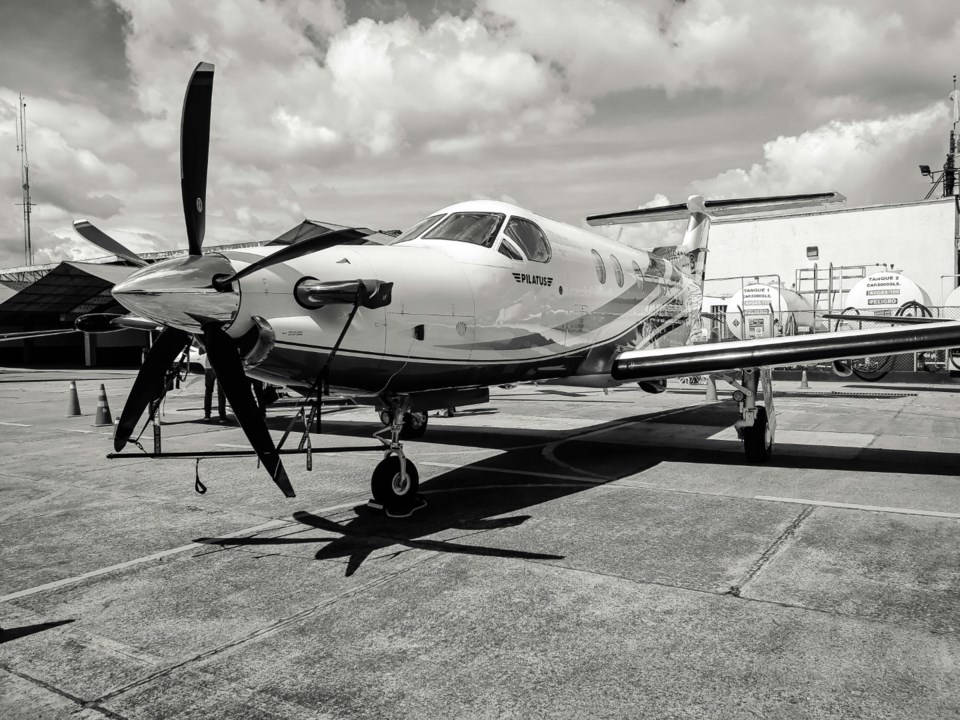SASKATOON — Sustainable aviation fuel is finally taking off, say analysts.
“A lot of global consumption is going to be underpinned by the mandates in Europe and the United Kingdom,” said Fabricio Cardoso, principal at Argus Consulting.
Both of those regions introduced two per cent SAF mandates in 2025 and will be driving global demand going forward, he said during a recent webinar hosted by the company.
Alfonso Berrocal, business development manager for oil products with Argus, estimates that the European Union and U.K. mandates will generate 1.5 to 1.7 million tonnes of demand in 2025.
The EU mandate remains at two per cent for the first five years and then moves to six per cent.
The U.K. mandate is more ambitious in the short-term, growing to 10 per cent by 2030 and 22 per cent by 2040.
However, the EU mandate is bigger in the long-term, climbing to 20 per cent by 2035 and 70 per cent by 2050.
Lindsey Liu, senior Argus analyst covering the Chinese biofuel market, said the Asia Pacific region is a bit behind the EU and U.K., but mandates are coming.
Japan is targeting a 10 per cent SAF mandate by 2030.
Singapore will go to one per cent by 2026, rising to three to five per cent by 2030.
Thailand’s is one per cent by 2026, climbing to three per cent by 2030.
India will have a one per cent SAF mandate on international flights by 2027, rising to five per cent by 2030.
China has no national mandate. Instead, it has set a 50,000 tonne SAF target for 2025 that will be met through airport level blend targets for select airlines at key airports in Beijing, Chengdu, Zhengshou and Ningbo.
Indonesia has a 2.5 per cent target for 2030, while Malaysia and South Korea have one per cent targets.
Australia has no planned mandate, but one is likely coming with the re-election of the Labor government in May.
Liu said there are SAF proposals in most of the major markets in the Asia Pacific region, but there is still considerable policy uncertainty, which is leaving producers wary.
“A lack of firm policy support in most countries in the region is slowing development of the sector and causing timelines of many planned projects to be postponed,” she said.
There are close to 50 announced projects in the region, but many are a long way from producing.
Matthew Cope, American biofuel reporter for Argus, said the SAF supply and demand situation is much further behind in North America.
“This market is far less developed than what we’re seeing in Europe and Asia,” he said.
It is a market that will be driven by tax credits rather than mandates.
Producers are still awaiting clarity on the , which will pay up to US$1.75 per gallon for SAF.
Cardoso said when it’s all added up, there will be about 15 billion litres of annual global demand by 2030 and 30 billion litres by 2035.
However, there is a big caveat.
“Obviously, any mandate coming from China could have a massive impact on overall demand,” he said.
As it sits, there will be more global capacity than demand until 2035 when demand finally surpasses capacity.
And that is only using projects that are under construction or have achieved a final investment decision.
If you factor in “very provisional” proposed plants that have not secured financing, the capacity far outstrips demand well beyond 2035.
The burning question for many in the agriculture sector is — what feedstock will be used to make the jet fuel?
“We would expect SAF to be coming primarily from UCO (used cooking oil),” said Cardosa.
However, there won’t be enough UCO to supply the sector by the time the EU achieves its 20 per cent mandate by 2035.
A wide assortment of feedstocks will be needed by that time.
About the author
Related Coverage

